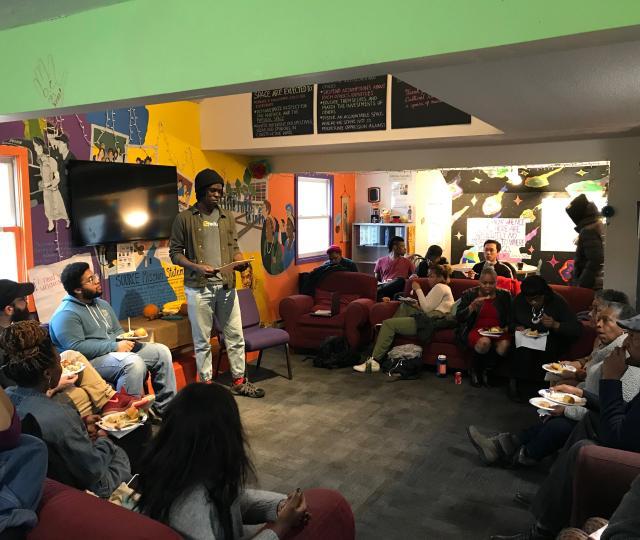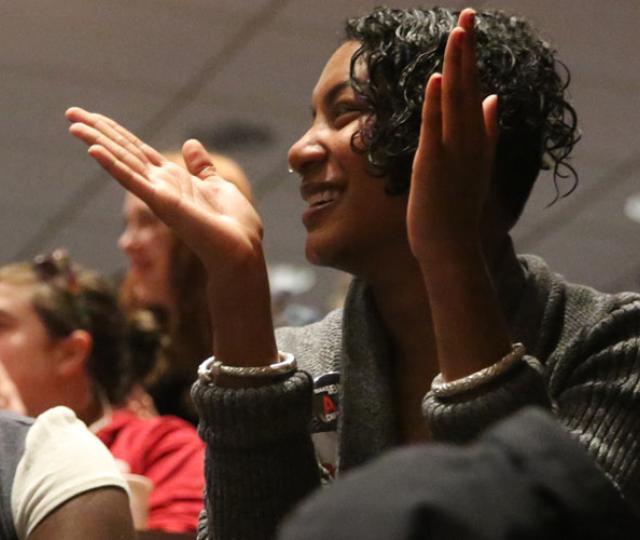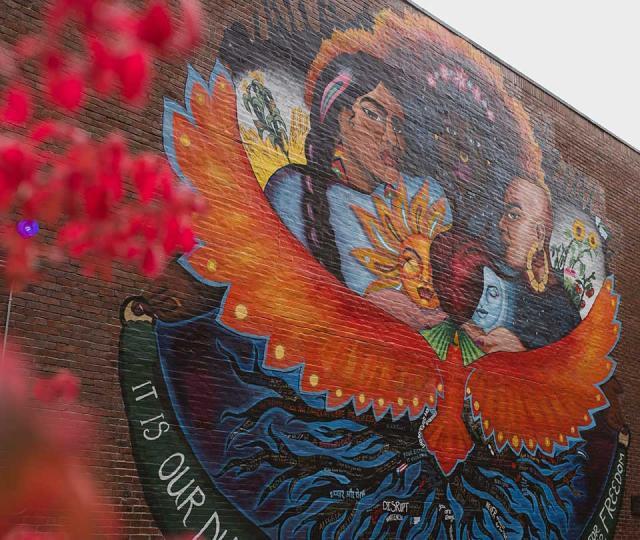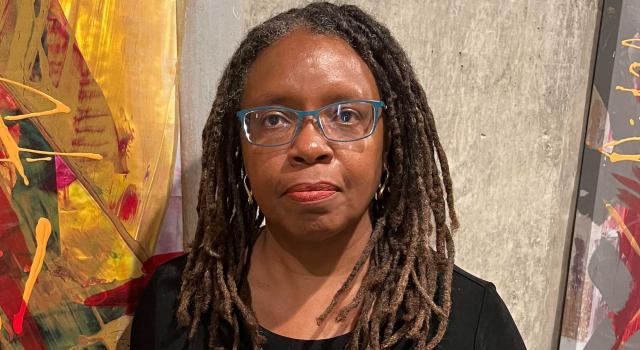Working to achieve this mission, the JEA-affiliated programs and offices include:
- The Community Commons (CoCo) engages students, staff, and faculty in meaningful collaborative inquiry and action, community engagement rooted in reciprocity and accountability. Through applied social justice community education, CoCo guides the campus efforts to address the urgent challenges facing our communities and our times.
- The Peer Facilitator Program, housed in CoCo, works with students, staff, and faculty to support the collective development of anti-oppression education within first-year academic programming and the wider campus community. Their goal is to build a critical consciousness in order to create an anti-oppression culture.
- The Office for Transformative Justice and Antiracism (TJAR) works to collaboratively develop and maintain the persistent integration of TJAR across Hampshire College, with the goal of developing stable, counter-oppressive, and liberatory environments for students, staff, and faculty.
- The Office of Accessibility Resources and Services (OARS) provides reasonable accommodations and empowers students to be self-advocates. OARS works with students, faculty, and campus partners to remove barriers to equal educational access and to create an inclusive campus culture
- The James Baldwin Scholars Program focuses on the needs of students from communities historically underrepresented in higher education and who are typically first-generation college students. Baldwin Scholars show academic promise, exhibit strong leadership within their communities, and display a commitment to social justice and equity.
In addition to the leadership and direction provided by these offices and programs, the JEA division guides multiple initiatives and projects:
- Through curricular coordination, the JEA division supports the faculty in teaching and students in fulfilling the Race and Power, Community Engaged Learning (CEL-1), and Learning Collaboratives requirements.
- The division organizes the college’s Community Days of Learning, which gather the campus and wider community to learn from visiting scholars and activists on such social justice themes and principles as transformative justice, disability culture, transgender liberation, and reproductive rights.
- Providing professional development to faculty and staff in antiracist pedagogy, socially committed research and creative activity, and equitable leadership, the division equips them to co-create an actively anti-oppressive professional and academic environment.
- Leading efforts to cultivate right and reciprocal relationships with Tribal Nations and Indigenous Peoples locally and regionally, the division's “Decolonization and Reciprocity Project” delineates and develops institutional commitments and responsibilities that are responsive to the needs, desires, and visions articulated by the college’s Indigenous neighbors.
By these and other means, the division of Justice, Equity, and Antiracism practices radical inclusivity so that everyone feels welcomed in this work to transform the College and to meet its goal of becoming an actively antiracist college.






